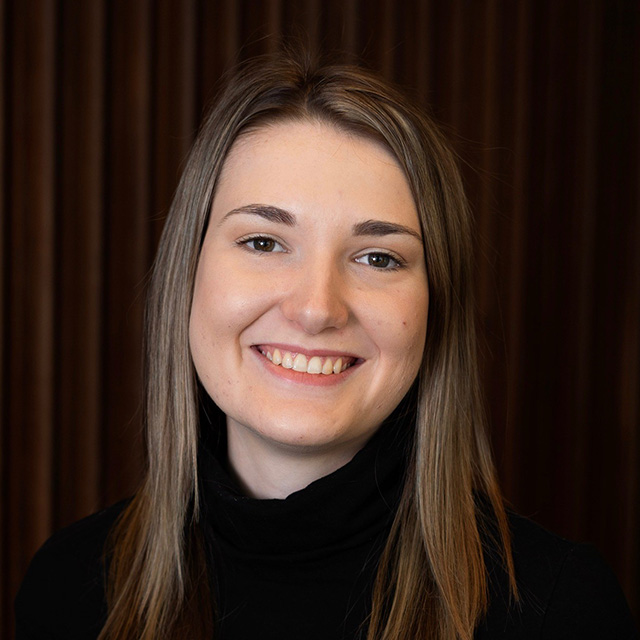Elouise Comber: From healthcare to VC investment
For Elouise Comber, biotechnology isn’t just about scientific discovery, it’s about bridging the gap between research, commercialisation, and real-world impact. As a PhD candidate at the Centre for Children’s Health Research, her work focuses on improving outcomes for children undergoing chemotherapy.
“My PhD sits within a broader clinical trial looking at a medication to prevent infection and complications in these patients,” she explains. “I’m examining how we translate this research into practice, identifying barriers, enablers, and even economic aspects that can influence its adoption into routine care.”
Elouise’s interest in biotech innovation goes beyond the lab. Thanks to her background in UQ’s innovation management major, she developed a keen understanding of commercialisation and the business side of science. This foundation led her to a unique career combination: alongside her PhD, she now works part-time in venture capital at Mandalay VC, an investment firm specialising in food and agricultural technology.
“They were looking for someone with a technical background who could assess the science behind start-ups,” she shares.
“It’s an incredible opportunity to apply my biotech knowledge while learning about investment and business strategy.”
Her passion for commercialisation was further reinforced during her time at UQ Ventures, where she participated in entrepreneurial programs. This culminated in her selection for the San Francisco Startup Adventure, where she worked at a pharmaceutical formulations start-up. “They were using AI and robotics to speed up drug formulation,” she recalls. “It was amazing to see firsthand how these technologies can revolutionise the industry.”
One of her proudest moments was receiving the Ross Barnard Award, a recognition that allowed her to meet and learn from the esteemed professor. “Ross is so supportive, and that experience was a real highlight in my journey.”
Creating impact
For Elouise, impact is at the heart of everything she does. Her PhD work could lead to faster adoption of life-saving treatments, reducing hospital stays and psychological stress for children and their families. “If we can get this medication into hospitals sooner, we can improve recovery times and limit complications,” she says.
Meanwhile, in her venture capital role, she is helping early-stage biotech companies secure the funding they need to grow. “We support founders who have incredible ideas – if they succeed, their impact could be massive,” she explains.
One such company she’s working with is developing a carbon-positive spirulina health product. “Not only is it a healthier food option, but the production process actually removes carbon dioxide from the atmosphere.”
Biotech innovation on the horizon
Elouise believes that needle-free vaccines, like those being developed by Vaxxas, have the potential to revolutionise healthcare.
“Not needing doctors or nurses to administer vaccines, and eliminating cold-chain storage requirements, could dramatically improve vaccination rates in developing countries,” she says. “Even in developed nations, removing the fear of needles for children – and adults – could increase compliance and prevent needle-stick injuries.”
She is also excited about the transformative power of artificial intelligence in biotech. “When I was in San Francisco, AI was everywhere. Over the next 5 to 10 years, I think we’ll see it completely change how we approach drug discovery, diagnostics, and personalised medicine.”
More broadly, Elouise highlights the urgency of biotech innovation. “The way we currently manage chronic diseases isn’t sustainable,” she explains.
“Biotech is critical to speeding up drug discovery and getting treatments to patients faster, with benefits that ripple across society.”
From Minjerribah to Silicon Valley
Looking back at her time at UQ, Elouise credits 2 standout experiences for shaping her journey.
The first was the biotechnology camp at Minjerribah (Stradbroke Island). “It was an amazing way to connect with both students and faculty early on. In first-year science lectures, there might be 400 people, but my biotech cohort was only about 30 students – this camp helped us build strong connections right from the start.”
The second was her participation in the San Francisco Startup Adventure. “Spending a month in Silicon Valley working at an incredible biotech start-up was a game-changer. Seeing the scale of biotech companies there was eye-opening,” she recalls. “We were so excited that we even paid our Uber driver to take us the long way around so we could drive past AstraZeneca and all the other big names. The driver thought we were hilarious!”
Advice for future biotech students
Elouise wants students to understand the vast range of career opportunities in biotech. “There’s a misconception that if you study biotech, you’ll end up in a lab forever. But that’s just one path,” she says. “There are so many avenues – regulatory affairs, quality management, commercialisation, investment – biotech isn’t just about research.”
She encourages students to embrace the broad scope of the field. “You need the technical foundation, but it doesn’t have to be your endpoint. The combination of science, business, and commercialisation skills can give you a real edge.”
From clinical research to venture capital, Elouise’s journey exemplifies the versatility of a biotech degree. “UQ’s program gave me the breadth of knowledge and skills to explore multiple pathways,” she says. “And that flexibility has been invaluable.”


 Read more inspiring stories from UQ biotechnology alumni
Read more inspiring stories from UQ biotechnology alumni